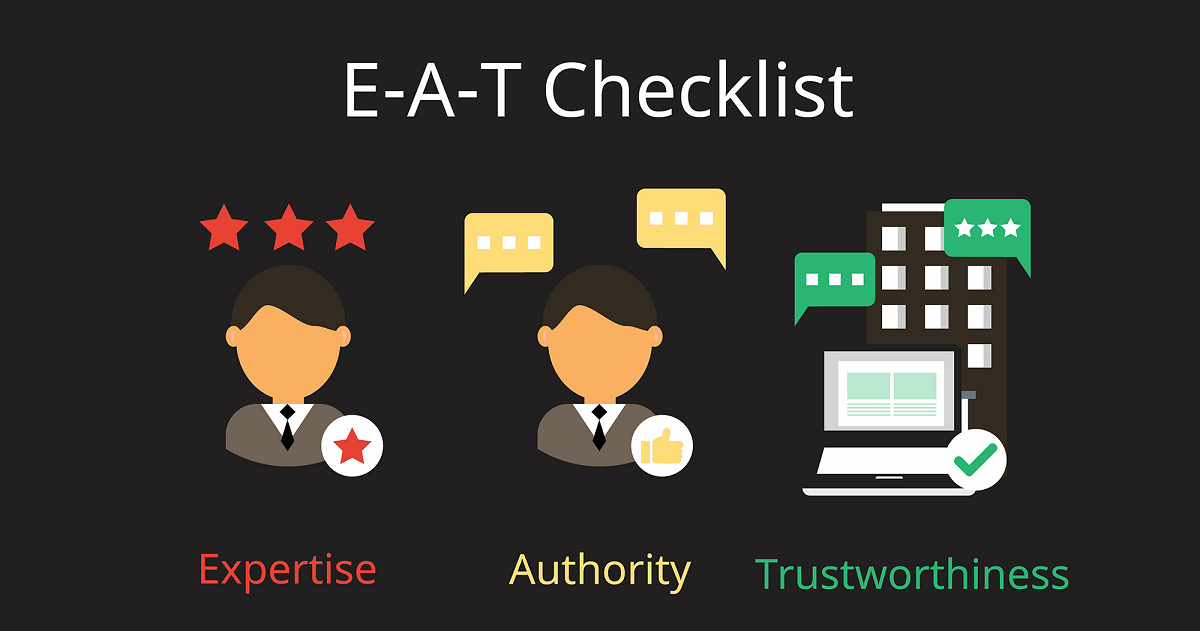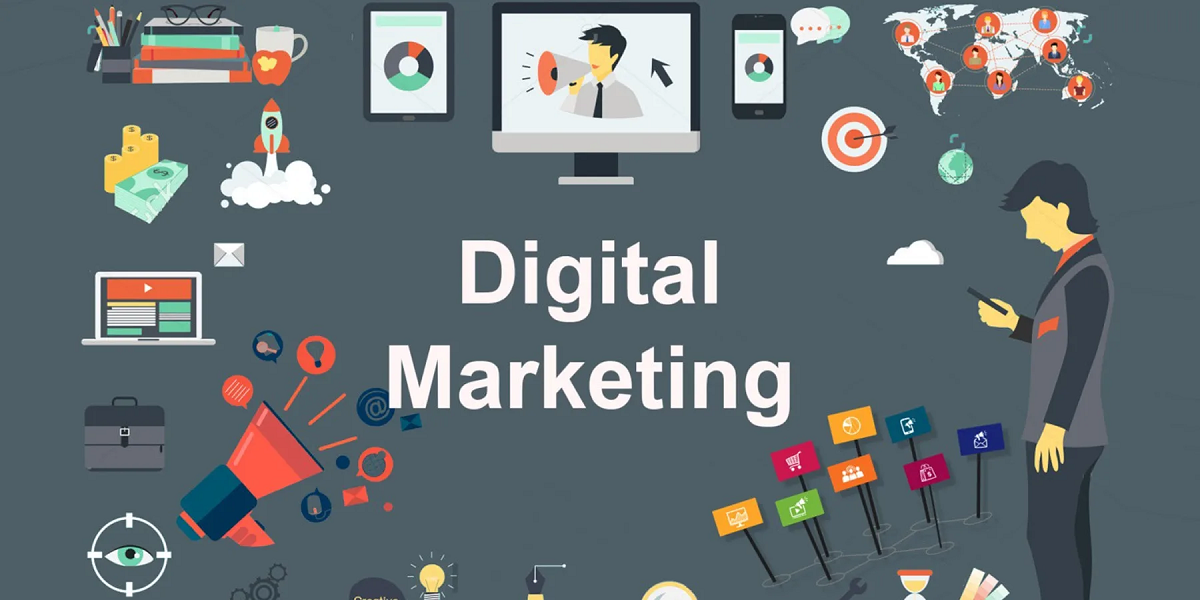BLOG
The Role of Influencer Marketing in Digital Marketing Services

In the ever-evolving landscape of digital marketing, one strategy has risen to prominence, proving its efficacy time and again: influencer marketing. It's not just a passing trend; it has become a cornerstone of many successful digital marketing campaigns.
The power of influencers lies in their ability to connect with audiences on a personal level, fostering trust and authenticity in a way that traditional advertising often struggles to achieve. As social media platforms continue to dominate online interactions, influencers wield significant influence over consumer behavior and purchasing decisions.
Brands are increasingly recognizing the value of collaborating with influencers to reach their target demographics effectively. In this blog, we delve into the intricacies of influencer marketing, exploring its role, impact, and best practices within the broader spectrum of digital marketing services.
Understanding the Evolution of Influencer Marketing
Influencer marketing has traversed a remarkable journey from its nascent stages to becoming a pivotal force in modern digital advertising. Initially, it was primarily about celebrities endorsing products, but with the rise of social media, the paradigm shifted. Influencers emerged as everyday individuals with niche expertise or captivating personalities, attracting dedicated followings.
This evolution democratized marketing, empowering brands to collaborate with micro and macro influencers, each catering to distinct audience segments. Moreover, as consumer preferences evolved towards authenticity and relatability, influencer marketing adapted, emphasizing genuine connections over blatant endorsements. Understanding this evolution is crucial for marketers, as it highlights the shifting dynamics of consumer-brand interactions and the evolving role of influencers in shaping purchasing decisions.
The Power of Influencer Partnerships in Brand Awareness
In today's cluttered digital landscape, cutting through the noise and capturing consumers' attention is increasingly challenging. Herein lies the power of influencer partnerships in brand awareness. By collaborating with influencers whose values align with their brand, companies can tap into pre-existing communities of engaged followers.
These partnerships offer a direct channel to reach target demographics authentically, bypassing the skepticism often associated with traditional advertising. Moreover, influencers possess the ability to humanize brands, lending a personal touch that resonates with audiences on a deeper level.
Whether through sponsored content, product reviews, or ambassador programs, leveraging influencer partnerships can significantly amplify brand visibility and foster genuine connections with consumers, ultimately driving awareness and loyalty.
Leveraging Influencer Content for Authentic Engagement
One of the distinguishing features of influencer marketing is its emphasis on authentic engagement. Unlike conventional advertisements that often feel intrusive, influencer-generated content seamlessly integrates into users' social feeds, feeling more like a recommendation from a trusted friend than a promotional pitch.
This authenticity is the cornerstone of successful influencer campaigns, as it cultivates genuine connections between brands and consumers. By leveraging influencers' creativity and storytelling prowess, marketers can co-create content that resonates with their target audience, sparking meaningful conversations and driving engagement metrics.
Whether it's through captivating Instagram stories, informative YouTube tutorials, or interactive TikTok challenges, influencer-generated content has the power to captivate audiences, evoke emotions, and inspire action, thereby fueling brand growth in the digital realm.
Influencer Marketing Metrics: Measuring Impact and ROI
In the realm of influencer marketing, understanding the impact and return on investment (ROI) of campaigns is essential for assessing their effectiveness and optimizing future strategies. However, measuring the success of influencer marketing efforts goes beyond traditional metrics like reach and engagement.
Marketers need to delve deeper into key performance indicators (KPIs) such as conversions, click-through rates, and customer acquisition costs to gauge the true impact on bottom-line results. Additionally, leveraging tools and technologies like affiliate tracking, unique discount codes, and UTM parameters can provide valuable insights into the ROI of influencer collaborations.
By adopting a data-driven approach and aligning metrics with overarching business goals, brands can accurately evaluate the performance of their influencer marketing initiatives and make informed decisions to maximize ROI.
Navigating the Diversity of Influencer Types and Platforms
Navigating the diversity of influencer types and platforms is crucial for effective marketing strategies. From macro to micro influencers, and Instagram to TikTok, understanding these variations is key. Here's a quick guide:
- Influencer Types: From celebrities and industry experts to content creators and everyday individuals, influencers come in various shapes and sizes, each offering unique advantages for brand collaborations.
- Audience Reach: Evaluating an influencer's audience demographics, interests, and engagement levels is essential for ensuring alignment with brand objectives and target market preferences.
- Platform Selection: Different social media platforms cater to distinct user demographics and content formats, necessitating careful platform selection based on audience preferences and campaign goals.
- Content Relevance: Crafting influencer partnerships that resonate with audiences requires aligning content themes, messaging, and formats with consumer interests and preferences across different platforms.
- Performance Metrics: Measuring the success of influencer collaborations involves tracking key performance indicators (KPIs) such as reach, engagement, conversion rates, and return on investment (ROI) to optimize campaign effectiveness and ROI.
Strategic navigation of influencer diversity is vital for successful marketing campaigns.
Crafting Effective Influencer Marketing Strategies
Effective influencer marketing strategies are pivotal for success, encompassing influencer selection, content creation, and performance assessment. Understanding target audience demographics, preferences, and behaviors is central. Aligning influencer partnerships with audience interests creates authentic content.
Clear campaign objectives, be it brand awareness or sales, define key metrics. Incorporating storytelling and creativity enhances engagement. Crafting these strategies demands a blend of art and science, informed by data and creativity, and a profound understanding of the brand and its audience.
Overcoming Challenges in Influencer Campaign Management
While influencer marketing offers immense potential, it also comes with its fair share of challenges, particularly in campaign management. From negotiating contracts and setting expectations to ensuring compliance with regulations and brand guidelines, managing influencer campaigns requires meticulous planning and execution.
Moreover, coordinating timelines, deliverables, and approvals across multiple influencers and platforms can be logistically complex. Additionally, maintaining authenticity and transparency in sponsored content while adhering to regulatory requirements, such as FTC guidelines, poses a unique challenge for marketers.
However, by leveraging influencer marketing platforms, project management tools, and robust communication channels, brands can streamline campaign management processes, mitigate risks, and ensure seamless execution from start to finish.
Legal and Ethical Considerations in Influencer Collaborations
Legal and ethical considerations in influencer collaborations are crucial for maintaining transparency, trust, and compliance, safeguarding brand reputation and fostering genuine connections with audiences. By prioritizing legal compliance and ethical integrity, brands can mitigate risks, uphold brand credibility, and cultivate meaningful relationships with influencers and consumers.
- Transparent Disclosure: Ensure influencers clearly disclose sponsored content to maintain transparency with their audience.
- Intellectual Property Rights: Respect copyrights and trademarks, ensuring proper usage of brand assets and creative materials.
- Regulatory Compliance: Adhere to relevant advertising regulations, such as FTC guidelines, to prevent deceptive practices.
- Authenticity and Honesty: Encourage influencers to provide genuine and unbiased reviews, avoiding misleading or exaggerated claims.
- Privacy Protection: Safeguard consumer data and privacy rights, adhering to data protection regulations and best practices.
Prioritizing legal and ethical considerations in influencer collaborations is essential for building trust, credibility, and authenticity. By fostering responsible and transparent partnerships, brands can uphold brand integrity and cultivate meaningful connections with influencers and audiences, driving sustainable growth and success.
Integrating Influencer Marketing with Overall Digital Marketing Strategies
Influencer marketing should not exist in isolation but rather be seamlessly integrated with broader digital marketing strategies to maximize impact and ROI. By aligning influencer collaborations with overarching marketing objectives and channels, brands can create cohesive, omnichannel experiences that resonate with audiences at every touchpoint.
For example, integrating influencer-generated content into social media advertising campaigns can amplify reach and engagement, while leveraging influencer testimonials in email marketing can enhance credibility and conversion rates. Moreover, incorporating influencer insights and audience feedback into market research and product development processes can inform strategic decision-making and drive innovation.
Ultimately, a holistic approach to influencer marketing integration ensures consistency, coherence, and synergy across all marketing efforts, resulting in a unified brand narrative and a more impactful customer experience.
Future Trends and Innovations in Influencer Marketing
In the ever-evolving landscape of influencer marketing, staying ahead of emerging trends and innovations is crucial for brands to maintain a competitive edge and maximize their impact. As technology continues to advance and consumer behaviors evolve, several key trends are shaping the future of influencer marketing:
- Rise of Nano Influencers: Smaller but highly engaged followings offer authentic and cost-effective opportunities for niche marketing.
- Growth of Live Streaming: Live influencer collaborations and interactive experiences foster real-time engagement and community building.
- Advancements in AI and Machine Learning: Revolutionizing influencer discovery, audience targeting, and content optimization for personalized campaigns.
- Emergence of Virtual Influencers: Blurring the lines between reality and digital realms, virtual influencers offer immersive brand experiences.
- Integration of Augmented Reality (AR): Interactive AR campaigns enhance user engagement and drive brand awareness in innovative ways.
As brands adapt to these future trends, it's essential to remain agile, innovative, and forward-thinking in their influencer marketing strategies. By embracing these innovations, brands can future-proof their campaigns and stay ahead of the curve in the ever-evolving digital landscape.
Influencer marketing has emerged as a dynamic and indispensable component of modern digital advertising, offering brands unparalleled opportunities for authentic engagement and meaningful connections with consumers. From its humble beginnings to its current state of evolution, influencer marketing has transformed the way brands interact with audiences, democratizing marketing and amplifying brand awareness in the cluttered digital landscape.
As we navigate the complexities of influencer collaborations, it's essential to remain vigilant of legal and ethical considerations, ensuring transparency, authenticity, and compliance with regulations. Looking ahead, the future of influencer marketing holds promise, with emerging trends such as nano influencers, live collaborations, and AI-driven innovations reshaping the landscape.
As a leading Rocklin digital marketing firm, we're committed to harnessing the power of influencer marketing to elevate your brand's visibility, engagement, and ROI. Contact us today at 2237 Apple Grey Ct, Rocklin, CA 95765 or call/text (916) 796-1220 to explore how we can help your brand thrive in the digital age. Let's embark on this exciting journey together and unlock new opportunities for growth and success.











